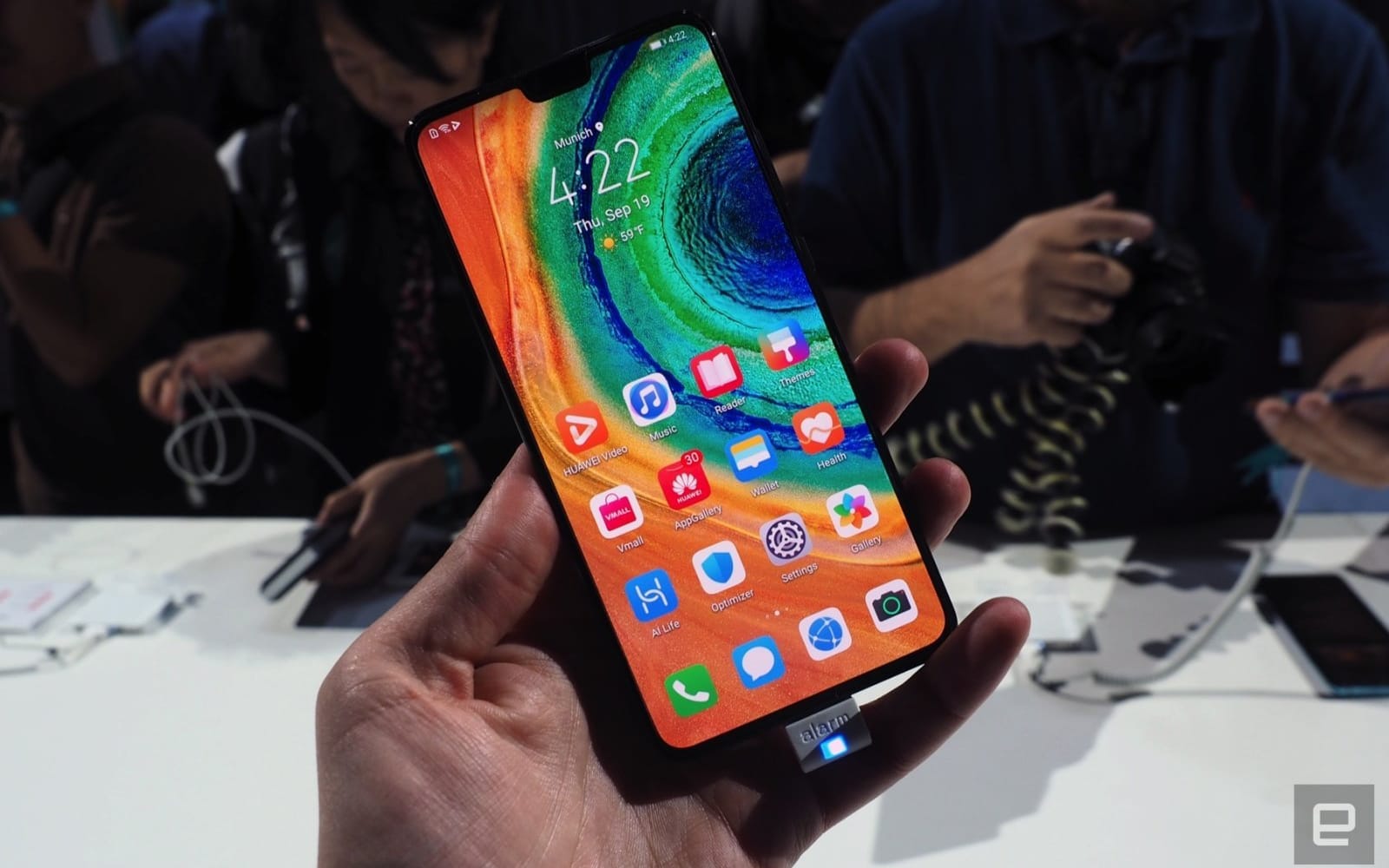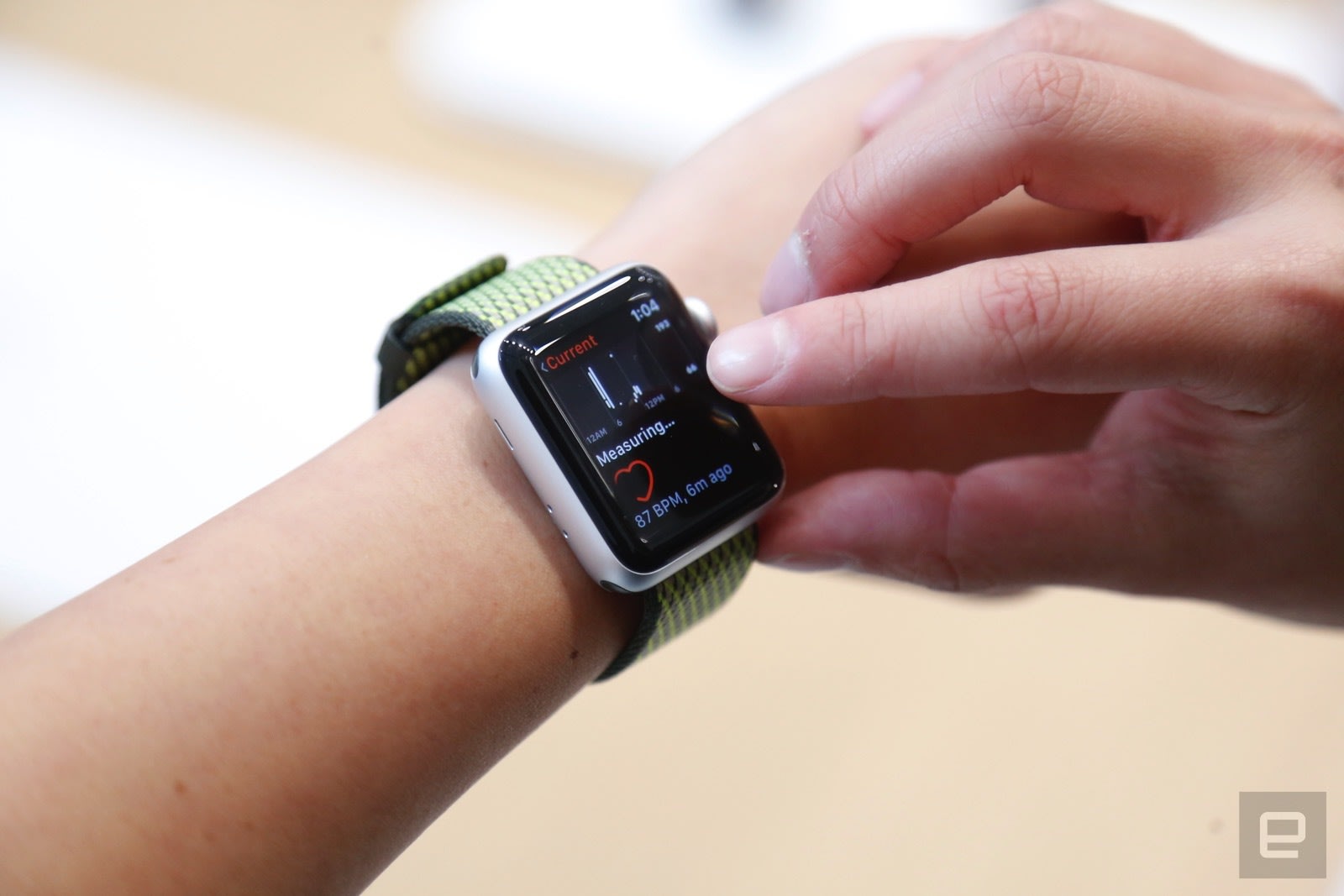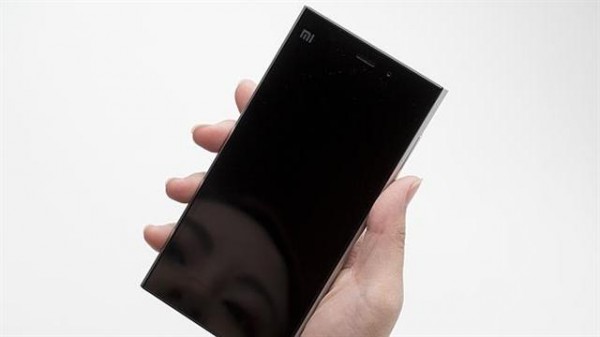Tag Archives: canalys
Huawei tops the worldwide smartphone market for the first time
Worldwide smartphone sales showed ‘biggest decline ever’ in Q1 2020
PC shipments see their largest drop in four years due to COVID-19
Huawei boosts smartphone sales in China by a whopping 66 percent
 In spite of US sanctions, Huawei is doing just fine in China. The company's domestic smartphone shipments increased 66 percent year-over-year, according to a report by market research firm Canalys. In the last quarter, Huawei shipped 41.5 million dev...
In spite of US sanctions, Huawei is doing just fine in China. The company's domestic smartphone shipments increased 66 percent year-over-year, according to a report by market research firm Canalys. In the last quarter, Huawei shipped 41.5 million dev...
Apple retakes the top spot in wearable device shipments
 It looks like Xiaomi's reign as the wearable device champion was short-lived. Canalys' latest estimates indicate that Apple regained the lead in wearable shipments during the third quarter of the year, shipping 3.9 million smartwatches over the summe...
It looks like Xiaomi's reign as the wearable device champion was short-lived. Canalys' latest estimates indicate that Apple regained the lead in wearable shipments during the third quarter of the year, shipping 3.9 million smartwatches over the summe...
India passes US to become second largest smartphone market
 The US is now the third largest smartphone market in the world, according to a new report by global technology market analyst firm Canalys. The number of smartphone shipments to India grew 23 percent in the third quarter of this year, reaching just o...
The US is now the third largest smartphone market in the world, according to a new report by global technology market analyst firm Canalys. The number of smartphone shipments to India grew 23 percent in the third quarter of this year, reaching just o...
Xiaomi Overtakes Samsung as China’s Leading Smartphone Vendor

An anonymous company not long ago, Xiaomi has managed to take the throne from Samsung as the largest vendor of smartphones in the world’s largest market: China.
With 15 million shipped devices that secured Xiaomi 14% of the Chinese smartphone market in the second quarter of 2014, the Beijing-based company outshined Samsung, which only sold 13.2 million smartphones that represented 13.2% of the total. Just to put things into perspective, Xiaomi experienced a growth of 240%.
Xiaomi achieved this by doing something that’s unconceivable for manufacturers outside of China. This manufacturer sold its devices at a price that exceeds by a little the cost of the components. While this might not make sense for other manufacturers, it’s perfectly logical for Xiaomi, which keeps its devices on the market for 18 months. In all this time, the cost of the components drops, and the company starts making profit. Besides that, outside of China, the same devices have much greater prices, and even the ones found on Chinese websites are overpriced.
Jessica Kwee, a Singapore-based analyst for Canalys, pointed out that “Xiaomi does have the potential to be a disruptive force beyond China and international vendors should take note.” In other words, international vendors should be less greedy and have greater care for their customers, instead of just trying to rob them. It’s really inexplicable how the flagship smartphones coming from big names are twice as pricey as their Chinese counterparts, while clearly underperforming.
Xiaomi does not only make top notch smartphones, but also accessories (such as the MiKey shortcut key for Android devices and the Mi Band smart wristband). On top of that, Xiaomi’s custom version of Android, known as Miui, is something that people can’t get on other devices. To make things even better, Miui gets updated weekly, on each Friday, fact that indicates just how much this company cares about its customers’ feedback.
The goal of this company is to show that affordable devices (well, not cheap by themselves, but in comparison to others) can be great, thus proving that being cheap is not always a bad thing (Tele2′s Frank the Black Sheep would definitely agree with this.)
Ten new markets, including Malaysia, the Philippines, India, Indonesia, Brazil and Turkey will get the chance to buy Xiaomi devices right away, as the company continues to expand. That can only be good news for anyone who’s looking to buy an affordable phone with a stellar performance.
Be social! Follow Walyou on Facebook and Twitter, and read more related stories about the Xiaomi Mi4 and Mi Band wearable, and the Xiaomi MI3 gaming smartphone.
Canalys: Android nabbed 75 percent of smartphone shipments in Q1
Canalys is back with its latest worldwide estimates of mobile device shipments, and while the analyst group has a divisive way of combining figures, there's plenty of insight to discover in its breakdown of the smartphone and tablet realms. First off, Canalys reports that Android accounted for 75.6 percent of all smartphone shipments during Q1, which is an increase from the 69.2 percent it reported for the previous quarter. As a whole, Canalys estimates that 216.3 million smartphones were shipped during Q1, which is roughly steady when compared to the three months prior. It should come as no surprise, but Samsung is said to lead the category with nearly a third of all smartphone shipments, while Apple accounted for roughly 17 percent of the pie. Meanwhile, Huawei, LG and ZTE are next in line, each with less than 5 percent of the market.
Given the prevalence of the iPad, you could just as easily guess that Apple continues to dominate the tablet category and still be right. Here, Canalys estimates that Apple holds a 46.4 percent market share, but qualifies that win, as that the company is losing ground to its Android-based rivals. On the upside, Canalys reckons that the tablet market has more than doubled from the previous year, which means there's plenty of pie to go around.
[Image credit: Jon Fingas, Flickr]
Filed under: Cellphones, Tablets
Source: Canalys
The Daily Roundup for 02.08.2013
You might say the day is never really done in consumer technology news. Your workday, however, hopefully draws to a close at some point. This is the Daily Roundup on Engadget, a quick peek back at the top headlines for the past 24 hours -- all handpicked by the editors here at the site. Click on through the break, and enjoy.

